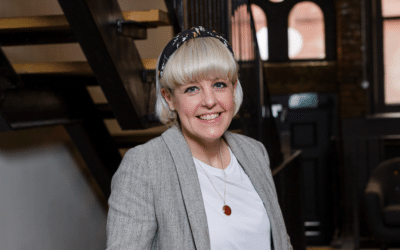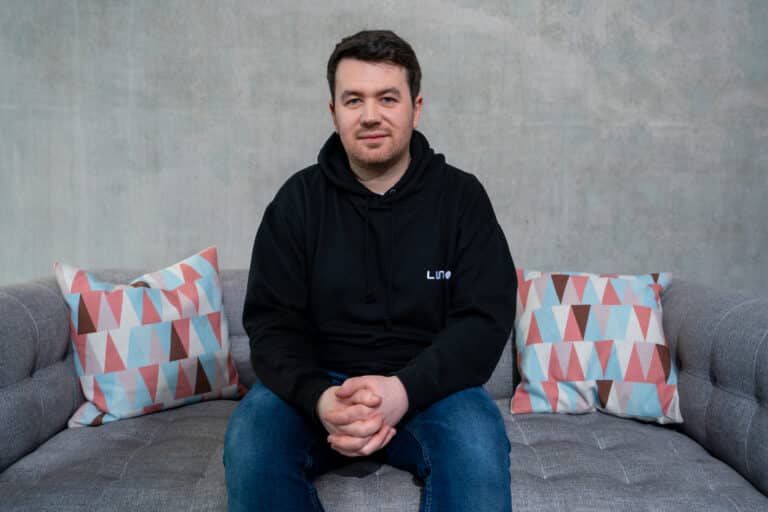Lunio is a performance marketing efficiency platform on a mission to tackle adtech fraud.
With offices in Chorley, Manchester and a presence in London, the company works with over 1000 businesses which includes McDonald’s, eBay and MetroBank.
Founded in 2018 by CEO Neil Andrew alongside Segev Hochberg and Alex Winston, Lunio closed a $15m Series A funding round led by Smedvig Capital.
Here, Neil shared his career journey, tips and advice.
How did you first get into your industry?
I started in the digital marketing space at 13, making my own websites and monetising them through displaying ads to generate some revenue. This led to me doing freelance work in the digital marketing space when at university (specifically SEO & PPC), and ultimately founding my own agency at 22.
That agency was fairly small, but nonetheless successful, and is where the product concept for Lunio was born. We initially created an MVP of our SaaS solution to roll out to our agency clients, and it quickly gathered momentum from there – to the point that it made more sense to focus all our efforts on scaling Lunio instead of our agency.
What do you love about your job?
Getting to solve big challenges that personally affected me! The whole concept behind Lunio was to solve a problem that we ourselves were facing at our agency, that problem being invalid traffic on our ad campaigns.
The product has advanced hugely since then, but the core concept remains the same – allowing marketers previously unseen insights, transparency, and efficiency by bringing back control of their ad budgets and eliminating waste.
Who – or what – has inspired you in your career?
My biggest inspiration is actually an “anti-inspiration” (if that’s even a thing?!). I did a short stint working in the marketing team in a very corporate environment and thoroughly hated everything about it. I always promised myself that when I build a business it would be the opposite to that in almost every way – and that promise still guides me to this day in the decisions I make and how I run the business. That means always putting our people first, having a “fail fast” mentality and having a total ban on corporate buzzwords!
What are the biggest challenges about your job?
Getting so many different functions/teams all pulling in the same direction. Everyone will always have different ideas or opinions on how things should be done, which is actually very useful to hear, but ultimately as leaders in the business it’s our job to ensure we all move forwards with one cohesive and clear voice.
There’s also the challenge of just never being “finished” with what you’re trying to achieve. We have so many things to achieve here at Lunio that it can easily become overwhelming. It’s important to be incredibly disciplined with time off and rest to avoid burnout.
What skills have been the most crucial to you succeeding in your career so far?
Coming from a marketing background has definitely helped me. As CEO, my role is essentially to sell the business – to investors, to shareholders, to prospects, to clients, to pretty much anyone who can stand listening to me!
By understanding what messaging resonates with who, and why, the role becomes quite a bit easier to achieve. Most of our early growth was entirely by leveraging our SEO & PPC skills as a team to drive huge inbound growth, which allowed us to start scaling quickly without significant capital costs.
What was your first salary and what could someone getting into the industry expect to earn nowadays?
£18,000 in 2014 as a marketing analyst (equal to £23,000 today). Although my first annual take-home once I started my own business was a whopping £5,500! Today, anyone entering the tech/SaaS industry should be expecting to earn anything from £25,000-£30,000 in entry level creative roles, and slightly more than that for marketing roles.
With 5-7 years of experience, you would then be looking at around double those numbers or higher. If someone is looking to start their own business, then don’t expect to take home much in year one or two!
What education or training would be most useful for someone looking to follow your career path?
Honestly, just go and do it! Building a business is incredibly hard but incredibly rewarding. There’re no specific skills you need beyond being highly motivated to solve a big problem and a willingness to learn. University or vocational training isn’t really relevant in the tech space, although some form of exposure to working in a startup/scaleup environment can be useful.
What advice would you have for someone looking to follow your path?
If you’re thinking of founding a business, go for it! The hardest part is taking the leap of faith and having the confidence in yourself to really make it work. However, do be prepared for a lot of hard work, sleepless nights and ultimately stress. It’s all worth it (at least in my opinion it is!), but it’s extremely different to being an employee.
You never switch off, your job is quite literally 24/7 and you have to genuinely love everything you do, or you will burn out very, very quickly.











